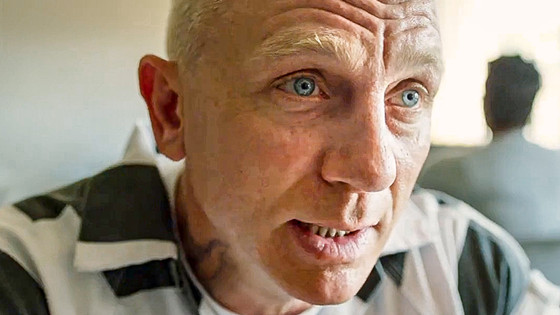
The year 2017 was extremely difficult in many ways, across the entire world. More than ever, the idea of impending doom and the unshakable divisiveness and darkness of our times felt present, and it was a constant struggle not to fall prey to despair. Thank the cinematic gods, then, for the movies that were exceptional this year.
Every year, of course, has masterpieces, but this one in particular saw the release of many, many great movies that sparked debate, passion, discomfort and joy; movies that challenged, made you think, or laugh, or both at the same time.
So rich was this year in films that, no matter how many were celebrated for some reason or another, there were plenty that didn’t get enough love and deserve some recognition.
To be clear, an underrated movie is not simply an obscure one; it can be that too, of course, but for the purposes of this list, it is considered a movie that deserved more attention than it received. So if a movie may have had some good reviews, but not enough to qualify it as a success, you’ll most likely find it here.
15. Hounds of Love
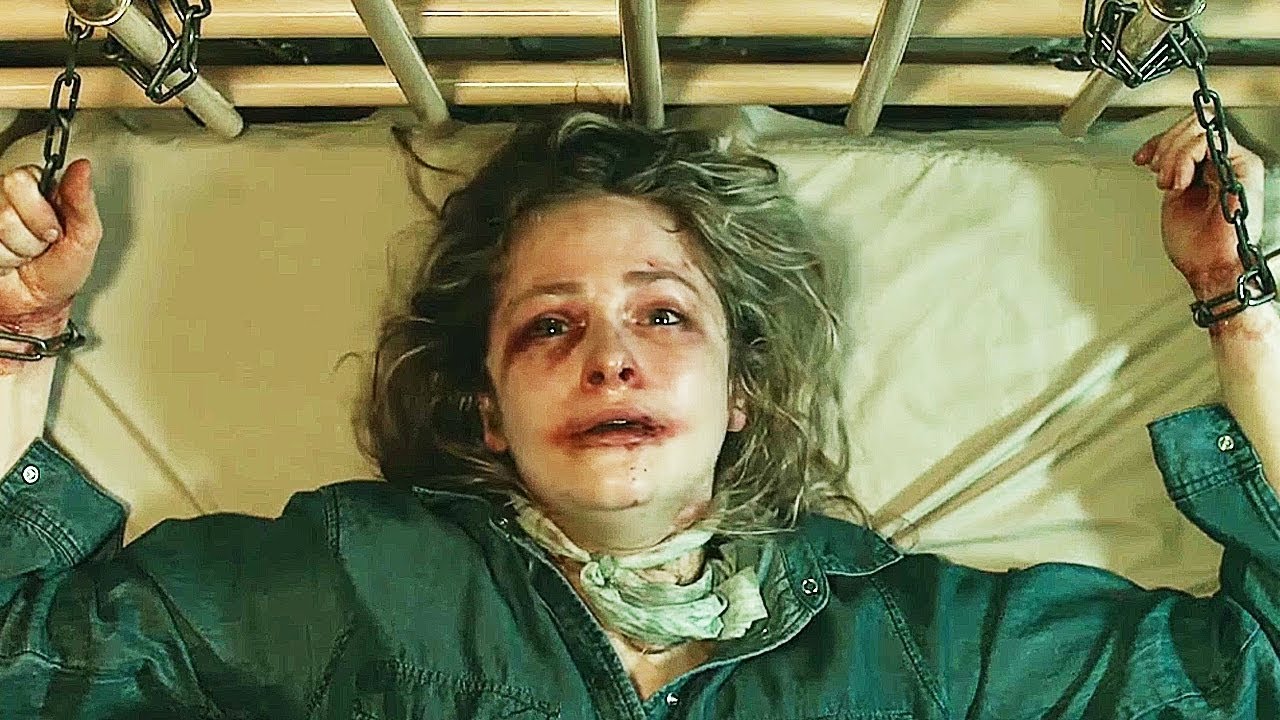
Cinema doesn’t necessarily have to be a pleasant experience to be great. That is a distinction a lot of audience members seem incapable of doing, as demonstrated this year by the polarizing reaction to movies like “mother!” and “The Killing of a Sacred Deer,” which were accused of being bad simply because they challenged the viewer and demanded they step out of their comfort zone.
The Australian thriller “Hounds of Love” is one such movie. Following the story of a teenage girl who gets kidnapped, and of the psychotic and complex couple that kidnaps her, the film runs for an almost unbearable one hour and 30 minutes as the viewer is powerless to look away from the horrors this girl is being subjected to.
But that queasy feeling is exactly what the movie’s going for, and it absolutely succeeds at it. It’s important to note, however, that this is not just a cheap gore fest in the vein of “Saw,” for instance; there’s deep psychological complexity here in dealing with the relationship of the three main characters, especially the woman of the couple, intensely portrayed by Emma Booth as someone perpetually on the edge of a breakdown. She is fierce and terribly violent, but there’s also such a fragile quality to her that makes her easily manipulable, not only by her husband, but also by the girl, and that’s where the conflict of the film begins to reveal itself and when the tension truly kicks into gear.
“Hounds of Love” is definitely not for everyone, but anyone willing to experience a movie that dares to be unpleasant will find a film that, yes, deeply disturbs, but also offers immense emotional catharsis.
14. The Villainess
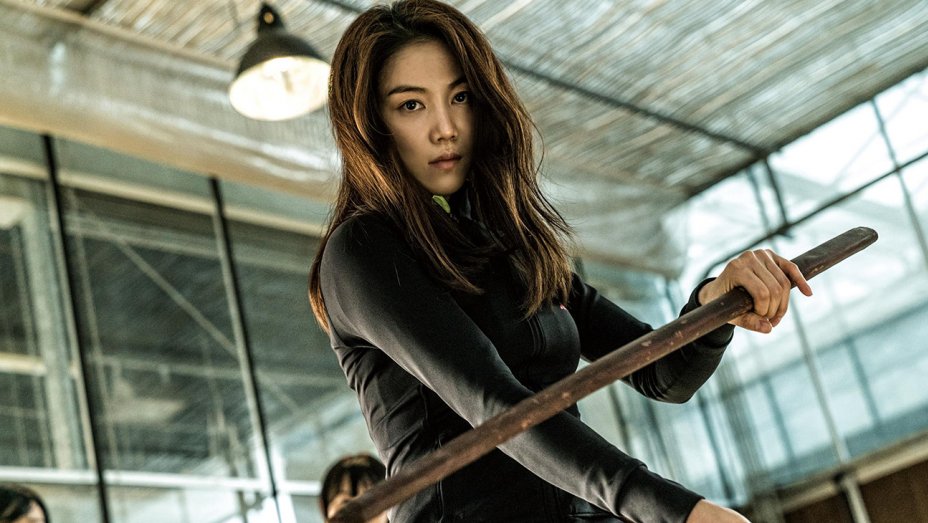
Korean cinema has had a tremendous resurgence since the 2000s, quickly becoming one the world’s leading cinematic powerhouses, thanks to filmmakers like Park Chan-wook and Bong Joon-ho, who directed international hits such as “Oldboy” and “The Host.” Their cinema has become so rich, in fact, that there’s even some great movies that manage to slip under the radar from most people, as was the case with “The Villainess.”
A bonkers action film in the vein of “La Femme Nikita” and “John Wick,” the narrative tracks the nonlinear story of a female assassin, from her training to the eventual shattering mission she’s tasked with, also flashbacking to her early childhood and adolescence, which will later play an important part.
Everything about this movie is ridiculously over the top, but that’s the point. The camera doesn’t simply pan or track; it’s an active participant in the choreography, moving as the characters do, which leads to completely insane sequences, like the tracking shot that opens the movie and the climax on a bus.
In keeping with the camera work, “The Villainess” also has a heightened dramatic quality to it, almost as if it was a melodrama of the 50s; the colors are vivid, the music is manipulative, and the dramatic situations are treated with the utmost seriousness. It’s as if Douglas Sirk directed “Kill Bill” and the results are irregular, but still fascinating to watch.
“The Villainess” is not the best action film of the year, but it’s definitely the most distinctive and deserved more attention.
13. Wheelman
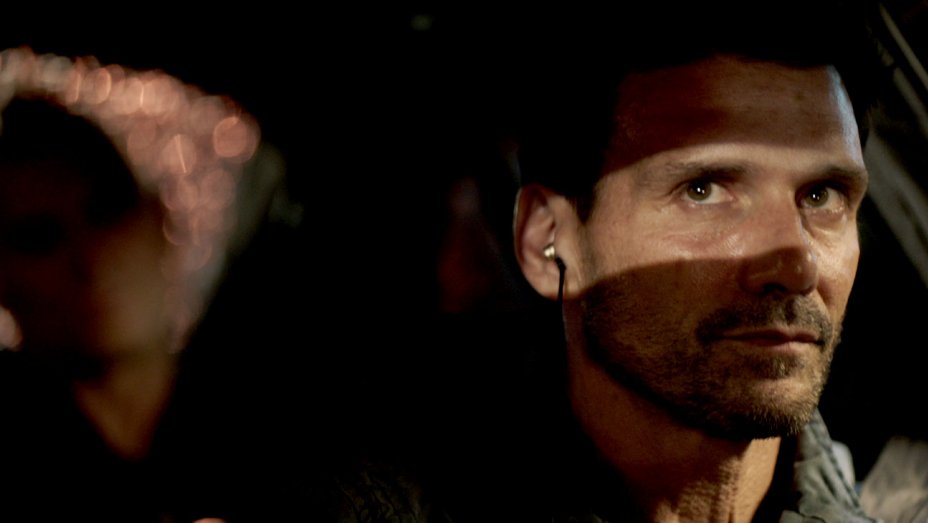
The “getaway driver” subgenre of crime movies are a dime a dozen; there are countless films that riff on the same basic premise and hit the exact same story beats as other, better movies, to mediocre effect. Every now and again, though, a smart director will find a way to breathe new life into the formula, like in this year’s massive hit “Baby Driver” and the more modest and underseen “Wheelman.”
A Netflix original movie, which perhaps explains why it went out mostly with no attention at all, “Wheelman” is as lean and mean as it gets: running at a tight 82 minutes, the movie is a real-time thrill ride from beginning to end, as we follow the driver (Frank Grillo in a career-making performance) while he tries to track down who double-crossed him in a job gone wrong.
It’s a familiar set up for sure, but director Jeremy Rush manages to make it completely distinct and exciting with the simple decision to always keep the camera in the car; there aren’t even transitional shots of the outside until the very last minutes of the movie. That had already been done a few years ago in the movie “Locke,” but while that was a drama, this is an action thriller, and that decision gives the movie a sense of emergency and tension that makes everything more exciting.
Featuring some surprising twists and clever ways of getting around the limitations of the single environment of the car, “Wheelman” is a taut and ingenious genre picture that will surely please fans of crime films.
12. Lady Macbeth
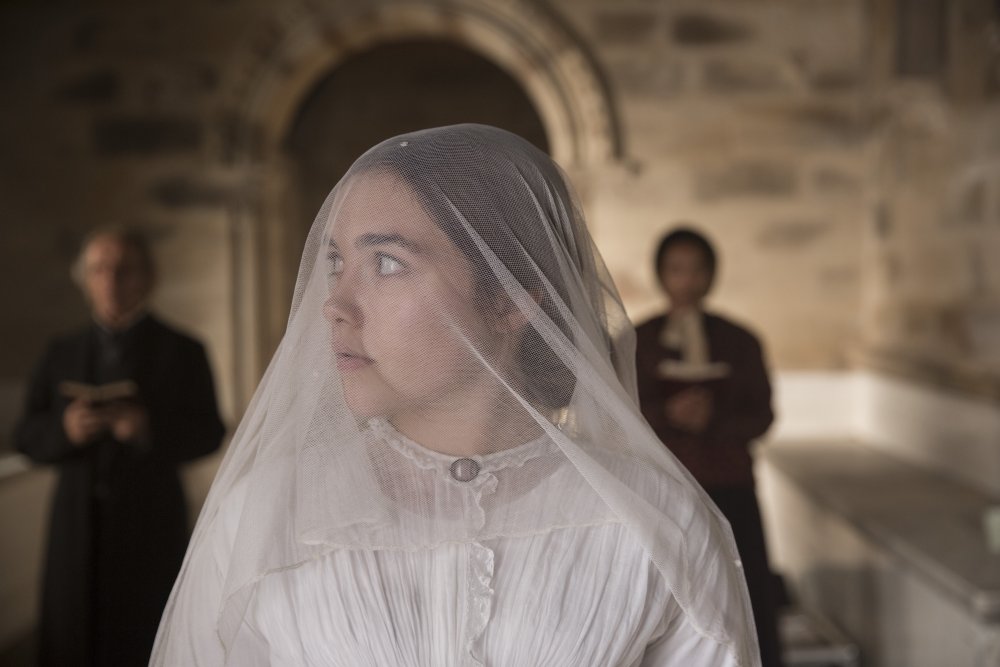
Although it’s a not an adaptation of Shakespeare (as the title would suggest), “Lady Macbeth” holds the same gripping power of inescapable tragedy that looms over everything, like in The Bard’s greatest works.
Made with virtually no budget but still managing to look like a prestige period studio picture, “Lady Macbeth” is a film of fantastic formalism, which becomes even more impressive when considering this is William Oldroyd’s first outing as a director. Every shot is strikingly composed; the position of the characters in the frame reveals a lot about their status and relationships; and the camera never moves without reason, often just observing the characters from a distance, allowing the audience to drink in the beauty of it all.
But “Lady Macbeth” is not just technique – it’s a suspenseful, morally complex tale of liberation, betrayal and guilt that keeps escalating to more and more violence and depravity. But the true standout element of the movie is Florence Pugh as the title character, in a performance that carries the film. She infuses the character with a rebellious spirit, a passion for life, and a justified anger at being denied her basic freedom, creating such a complex figure of a woman trying to gain back her power. The audience can’t help but be on her side, until she starts making decisions of incredible cruelty, at which point the movie takes a whole new weight thematically.
“Lady Macbeth” is a fascinating study of morality, aided by phenomenal control behind the cameras and absolute commitment in front of them, and it’s a movie that, precisely because of the questions it imposes, everyone will experience in a different way.
11. Una
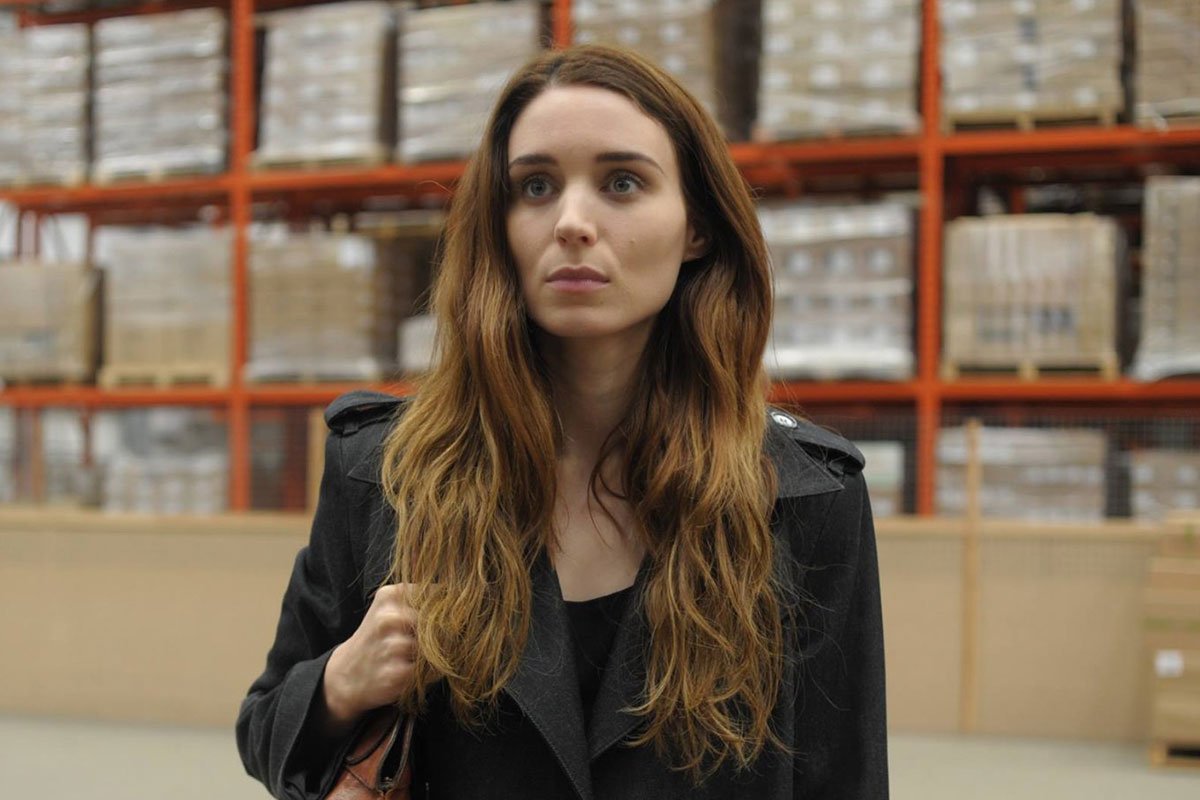
A movie that’s unfortunately been stuck is release date hell for a while, “Una” was filmed in 2015 and was planned to be released later that same year, possibly for awards consideration. It didn’t happen, getting delayed until 2016, which also fell through. Finally it came about to the public mid-2017, with absolutely zero fanfare whatsoever, which is a shame considering Rooney Mara and Ben Mendelsohn should have been Oscar contenders.
Based on the renowned play “Blackbird” (with the screenplay written by playwright himself, David Harrower), “Una” has a simple set-up: a woman finds the man who abused her as a child 15 years earlier and confronts him about it. But that’s just about where the simplicity ends, as what follows is a profoundly nuanced and complex discussion about trauma, dependency and love, but, most of all, it’s a study of those two characters and how they relate to each other.
The movie doesn’t shy away from its theater roots and it’s mostly based around dialogue instead of images, but director Benedict Andrews does find creative ways to use the camera, as in the moment when Ray, the abuser, sees Una for the first time, and is framed in a disjointed kind of way, demonstrating his discomfort and shock. The director is also efficient in the use of space, staging the action in small, claustrophobic spaces.
But what really makes the movie are the performances by Mendelsohn and especially Mara, who take interesting characters on the page and elevate them to new heights. Mendelsohn creates a complex figure of a man who regrets his actions but also doesn’t want to take full responsibility for them; while Mara, alternating between subtle expressions and incredible intensity, creates an angry, bitter woman who slowly reveals hidden attachments to her former lover/abuser.
The end is a bit abrupt, but until then, “Una” is a gripping drama with exceptional writing and acting.
10. A Quiet Passion
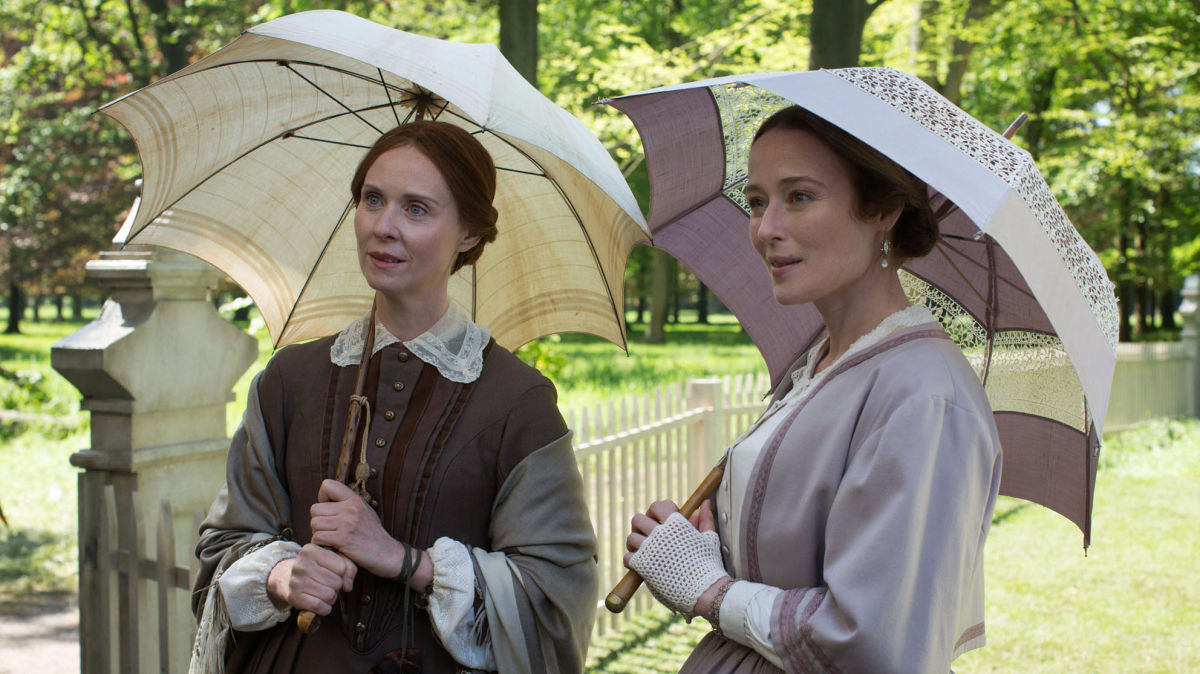
Terence Davies has consistently been making great movies since the late 1980s and, somehow, during all this time, his incredible, sensitive work has always been on the margins of proper recognition, always getting praise from a limited group of critics and fans but failing to achieve a wider audience or the awards consideration he deserves. The latest victim of this oversight is “A Quiet Passion.”
A melancholic meditation on resentment and the emotional and psychological consequences of leading a completely unremarkable and restrained life, the movie takes the figure of american poet Emily Dickinson as basically an avatar for Davies himself; an artist who, like Dickinson, lives a completely withdrawn, modest existence. Both Davies and Dickinson are tortured by the thought that not only are they not living life to the fullest, but also that the world is oblivious to the beauty of their work.
It would already be an interesting biopic/self portrait with beautiful visuals, but what truly elevates it is the performance by the exceptional Cynthia Nixon as Dickinson, in a turn full of controlled rage but also deep with wonder. Nixon carries the movie on her shoulders, making more with simple smile than most actors can do with their entire bodies; it’s a performance of absolute control and quietness, but also completely intense.
“A Quiet Passion” is admittedly an acquired taste; it’s slow and doesn’t really have a plot, but those that stick with it will find a visually arresting, emotionally devastating movie that might make you reconsider your own life.
9. Tramps
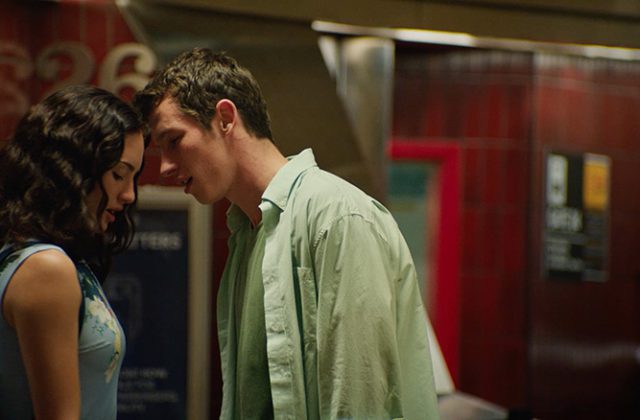
Like “Wheelman,” “Tramps” suffered the fate of being unceremoniously released one Friday on Netflix with practically zero marketing, making it just one more on the ever-growing list of obscure movies that get lost in the crowd of Netflix’s original material.
Which is a shame, because “Tramps” is a lovely little movie, the kind that has become somewhat rare. A low budget romance movie that’s not too self serious, it’s genuinely funny, but not at the expense of character development. The characters, in fact, are what makes this such a warm-hearted, sweet movie to watch; played wonderfully by newcomers Callum Turner and Grace Van Patten as two down-on-their-luck teens who must return a bag full of money, the relationship they form is the emotional backbone of what is basically a road movie, as we follow them in their mission, slowly growing to appreciate each other’s company.
It’s not a standard “falling in love” type of rom-com, but a much more real, intimate kind of movie that simply observes two vastly different people as they bond thanks to extraordinary circumstances. Part of what makes it so intimate and delicate is, of course, the actors who portray not only the individual personalities of the characters, but also sell the attraction they ultimately feel for one another. However, attention must also be given to the low-key approach of director Adam Leon, who always keeps the camera close to his actors and allows everything to flow with ease and naturality.
“Tramps” is not the most fresh or revolutionary film you’ll see from 2017, but it’s one of the most enjoyable.